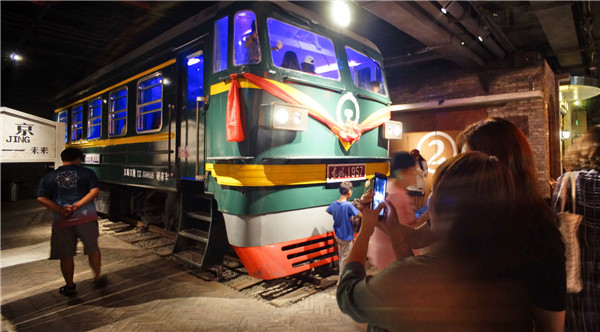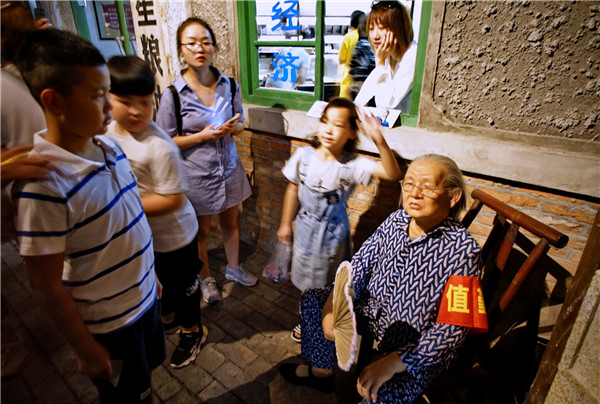Underground 'time machine' unveils Chinese capital in 1980s
Xinhua | Updated: 2019-12-09 10:46

"When I was a little boy, Hutong meant connections between neighbors, where people shared lives and would even leave home without locking their doors," said Han.
In recent years, Chinese government authorities have rolled out a slate of supportive policies of cultural heritage protection.
According to a report of the National Cultural Heritage Administration in 2014, over 10 billion yuan (about 1.42 billion U.S. dollars) was invested in protecting 43 historical blocks in Beijing including streets around Tiananmen Square, Shicha Lake and South Luogu Lane.
As one of the oldest business streets along Beijing's historical blocks, Wangfujing street is adapting to meet client demands by incorporating features of Beijng's culture.

"Wangfujing street can be a center of cultural exchanges and a model of Chinese commerce," said Liu Bing, chairman of the commerce chamber of Wangfujing street.
According to a report published by the Ministry of Commerce on April 3, 2019, Beijing planned to stimulate consumption and upgrade commerce facilities.
Having succeeded in opening several Beijing specialty restaurants like "Ju Qi," which gained a reputation for its adherence to Beijing folk cultures in interior design and dish design, Han Tong attempted to make breakthroughs in the retail business.
"Capturing the elements of Beijing in the 1980s, I want to reinvigorate these essential parts of life among Beijingers to adapt to their modern needs," said Han Tong.
























